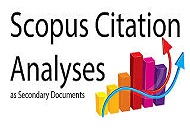Evaluasi Implementasi Pembelajaran Daring pada Pembelajaran Akuntansi Perusahaan Dagang di Masa Pandemi Covid-19
DOI:
https://doi.org/10.33394/jk.v7i3.3849Keywords:
Evaluation, Online Learning, Trading Company Accounting, Covid-19.Abstract
References
Abidi, Z. (2020). Efektifitas Pembelajaran Jarak Jauh Pada Masa Pandemi Covid-19. Research And Development Journal Of Education. Vol.1 No. 1, 131-146.
Anggianita, Yusnira, & Rizal. (2020). Persepsi Guru Terhadap Pembelajaran Daring di Sekolah Dasar Negeri 013 Kumantan. Journal of Education Research,1 (2), 177-182.
Anugrahana, A. (2020). Hambatan, Solusi, Dan Harapan: Pembelajaran Daring Selama Masa Pandemi Covid-19 Oleh Guru Sekolah Dasar. Jurnal Pendidikan Dan Kebudayaan, Vol 10. No. 3 September 2020, 282-289.
Badu, S. (2012). Implementasi Evaluasi Model Kirkpatrick Pada Perkuliahan Masalah Nilai Awal dan Syarat Batas. Jurnal Penelitian dan Evaluasi Pendidikan, 102-129.
Effendy, & Wahidy. (2019). Pemanfaatan Tekonologi Dalam Proses Pembelajaran Menuju Pembelajaran Abad 21. Prosiding Seminar Nasional Pendidikan Pascasarjana, 125-129.
Husna, R., Roza, Y., & Maimunah, M. (2021). Identifikasi Kesulitan Guru Matematika Dalam Pelaksanaan Pembelajaran Daring di Masa Pandemi Covid-19. Jurnal Kependidikan: Jurnal Hasil Penelitian dan Kajian Kepustakaan di Bidang Pendidikan, Pengajaran dan Pembelajaran, 7(2), 428-436. doi:https://doi.org/10.33394/jk.v7i2.3333
Iskandar, A. (2019). Evaluasi Diklat ASN Model Kirkpatrick (Studi Kasus Pelatihan Effective Negotiation Skill Balai Diklat Keuangan Makassar. Jurnal Pendidikan, Vol. 20, No. 1, Maret 2019, 18-39.
KementerianKesehatan. (2020). Pedoman Pencegahan dan Pengendalian Coronavirus Disease (COVID-19). 3. 1–116.
Lucia, & Firosalia. (2016). Efektivitas Model Pembelajaran Tipe Group Investigation (GI) dan Cooperative Intergrated Reading And Composition (CIRC) Dalam Meningkatkan Kreativitas Berpikir Kritis dan Hasil Belajar IPS Siswa Kelas 4. Scholaria, Vol. 6, No. 3, September 2016, 217-230.
Magdalena, I. (2020). Dampak Covid Terhadap Implementasi Pembelajran Daring Dieskolah Dasar. Jurnal Pendidikan Dan Sains. Vol. 2, No. 3 Desember 2020, 323-333.
Muah, T. (2016). Penggunaan Model Pembelajaran Problem Based Learning (PBL) Untuk Meningkatkan Keaktifan Dan Hasil Belajar Matematika Siswa Kelas 9B Semester Gasal Tahun Pelajaran 2014/2015 SMP Negeri 2 Tuntang - Semarang . Scholaria, Vol. 6, No. 1, Januari 2016, 41-53.
Paramita, Y., & Subroto, W. (2021). Faktor Kritis Kesiapan E-Learning Pendorong Perfoma Belajar Ekonomi Siswa SMA Selama Pandemi Covid-19. Jurnal Kependidikan: Jurnal Hasil Penelitian dan Kajian Kepustakaan di Bidang Pendidikan, Pengajaran dan Pembelajaran, 7(2), 314-327. doi:https://doi.org/10.33394/jk.v7i2.3499
Ritonga, Asep, & Uyu. (2019). Penerapan Model Evaluasi Kirkpatrick Empat Level Dalam Mengevaluasi Program Diklat Di Balai Besar Pelatihan Pertanian (BBPP) Lembang. Jurnal Pendidikan Nonformal Volume 14. No. 1. Maret 2019, 12-21.
Sainah Jum’atus. (2020). Pembelajaran Daring Di SMA Negeri 1 Sungai Tabuk Bagi Siswa Pada Masa Pandemi Covid-19. 1-7.
Sofyana, & Abdul. (2019). Pembelajaran Daring Kombinasi Berbasis Whatsapp Pada Kelas Karyawan Progdi Teknik Informatika Universitas PGRI Madiun . Jurnal Nasional Pendidikan Teknik Informatika, Vol. 8, No.1 , 81-86.
Sugiyono. (2017). Metode Penelitian Kuantitatif, Kualitatif dan R&D. Bandung: Alfabeta.
Sunhaji. (2014). Konsep Manajemen Kelas Dan Implikasinya Dalam Pembelajaran. Jurnal Kependidikan, Vol. 11 No 2 November 2014, 30-46.
Wahyu, & Endang. (2019). Respon Siswa Terhadap Alat Pirolisis Sampah Plastik Sebagai Media Pembelajaran Berbasis Lingkungan Di SMP Musi Rawas. Journal Of Natural Science Teaching Vol. 02 No. 02 , 95-104.
Yantoro, Ahmad, Zakiah, & Mohamad. (2021). Inovasi Guru Dalam Pembelajaran Di Era Pandemi COVID-19 . Jurnal Penelitian Pendidikan Indonesia Vol. 7, No.1 , 8-15.
Downloads
Additional Files
Published
How to Cite
Issue
Section
Citation Check
License
License and Publishing AgreementIn submitting the manuscript to the journal, the authors certify that:
- They are authorized by their co-authors to enter into these arrangements.
- The work described has not been formally published before, except in the form of an abstract or as part of a published lecture, review, thesis, or overlay journal.
- That it is not under consideration for publication elsewhere,
- That its publication has been approved by all the author(s) and by the responsible authorities – tacitly or explicitly – of the institutes where the work has been carried out.
- They secure the right to reproduce any material that has already been published or copyrighted elsewhere.
- They agree to the following license and publishing agreement.
Authors who publish with JK agree to the following terms:
- Authors retain copyright and grant the journal right of first publication with the work simultaneously licensed under a Creative Commons Attribution License (CC BY-SA 4.0) that allows others to share the work with an acknowledgment of the work's authorship and initial publication in this journal.Â
- Authors are able to enter into separate, additional contractual arrangements for the non-exclusive distribution of the journal's published version of the work (e.g., post it to an institutional repository or publish it in a book), with an acknowledgment of its initial publication in this journal.
- Authors are permitted and encouraged to post their work online (e.g., in institutional repositories or on their website) prior to and during the submission process, as it can lead to productive exchanges, as well as earlier and greater citation of published work.
- Open Data Commons Attribution License, http://www.opendatacommons.org/licenses/by/1.0/ (default)

This work is licensed under a Creative Commons Attribution-ShareAlike 4.0 International License.








